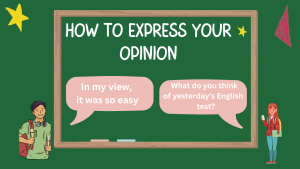
Introductory notes about modal auxiliaries
Modal auxiliaries are types of helping verbs that help us express certain moods and functions such as ability, obligation, possibility, prohibition, etc.
They are always used with main verbs and never take any endings like the third person singular “s”, the past simple “ed”, or the “-ing” form. For example, we don’t say: He cans, she is shoulding, they musted, etc.
When using modals to talk about present situations, we just add the bare infinitive to the modal; i.e., (subject+modal+verb).
Generally, modals don’t change their forms. But some of them take a different form when used in the past tense. Study the following table to get more insight:
| Present Form | Example | Past Form | Example |
| Can | They can move to their new apartment. | Could | They could move to their apartment. |
| May | She may attend the party. | Might | She might attend the party. |
| Must | I must renew my Identity Card. | Had to | I had to renew my Identity Card. |
| Have to | We have to go home early. | Had to | We had to go home early. |
| Will | I will do my best. | Would | I would do my best. |
Functions expressed by modals
As mentioned above, in addition to affecting the verb’s meaning, modal auxiliaries are used to express certain functions in the sentence. Most of these functions are illustrated in the table below along with examples.
| Modal | Function | Example |
| Can | possibility | They can go to Rabat this week. |
| Can | asking for permission | Can I leave early this afternoon? |
| Can | ability/capability | I can lift 100 kilos. |
| Could | Asking for permission | Could I call you late at night? |
| Should/had better/ ought to | Advice/advisability/suggestion | You should/had better/ought to eat healthy food. |
| Needn’t/don’t have to | Absence of obligation/necessity | I am not fat. I needn’t/dodon’t have to go on a diet. |
| Mustn’t/can’t | prohibition | People mustn’t smoke in public places. |
| Must/have to | Obligation/Necessity | Students must/have to go to school every day. |
| Must | Deduction/Conclusion | Jane is absent today. She must have a problem. |
| May | Possibility | It is cloudy. It may rain. |
| May | Asking for permission | May I take your pen, please? |
| Might | Possibility | Things might improve in the coming weeks. |
| Might | Asking for permission | Might I take your pen, please? |
| Will | Request | Will you open the door, please? |
| Will | Promise | I will buy you a nice T-shirt if you get a high grade. |
| Will | Simple future | It will be rainy tomorrow. |
| Would | Request | Would you pass me the salt, please? |
| Would | Conditional type 1 | If I were you, I would do better. |
Explanations/Equivalents of modal auxiliaries
- Can = be able to/be capable of = It is possible = it is allowed/permitted
- Must = be obliged to
- Have to = it is necessary
- Needn’t = it not necessary
- Mustn’t (must not) = not allowed/not permitted = be prohibited = be forbidden
- Should = recommend
- May = it is possible = it is permitted/allowed
Exercise about modal auxiliaries
Fill in the blanks with the correct modal auxiliary
- This is a very precious book. You ________ lose it.
- He will be having lessons for another two hours. We _________ visit him now.
- You _________ wash those carrots. They’ve already been washed.
- We _______ hurry. We’ve got plenty of time.
- We have enough milk in the fridge so we __________ buy some more.
- This is a very great novel. You _______ read it.
- Time is not on our side. We _________ hurry.
- What kind of car do you want to buy? Something flashy?’ ‘Well, it __________ be flashy – that’s not important.’
- Tim gave me a mail to send. I ___________ remember to mail it.
- Mary gave me a letter to post. I __________ forget to mail it.
- I ———– lift 300 kilos when I was younger.
- You ———- sleep eight hours a night.
- ———– you help me study for the test?
- It ———– be too late for dinner.
- The waiter ———– bring our order soon.
- …………. you give me your P.C., please?
- You ………………. give up bad eating habits.
- Please, ……………….. you buy me some English books?
- …………… your wife cook pizza?
- The school ………………… offer us good facilities.






